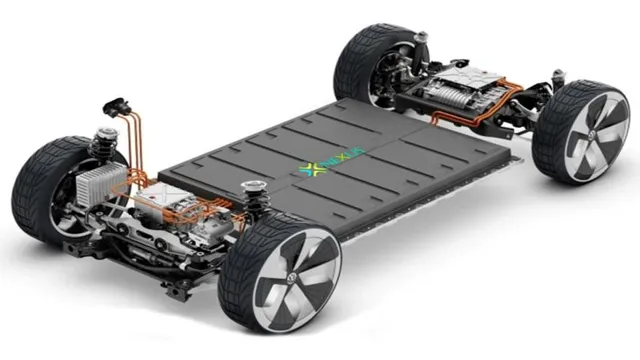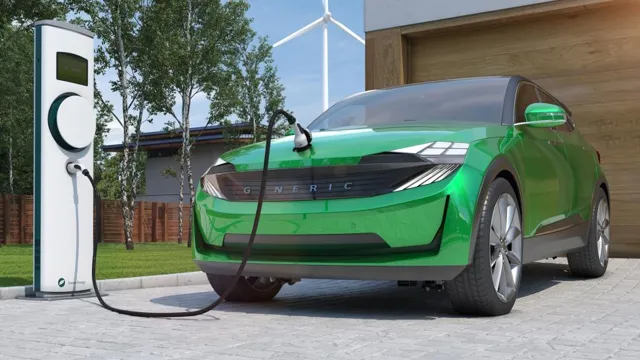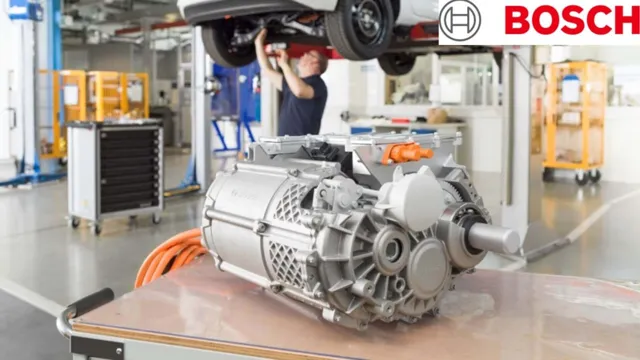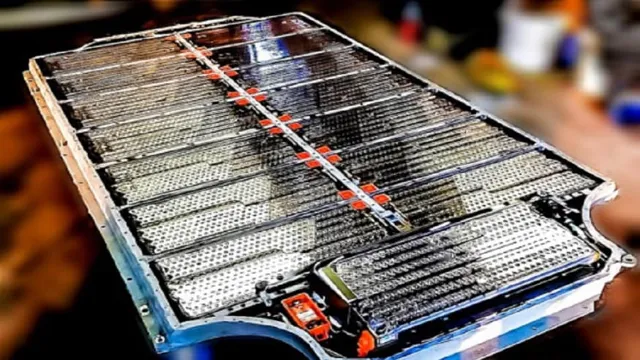Exploring the Lithium Ion Connection in Electric Cars: Are They the Only Option?
Electric cars have been gaining traction in the market in recent years, with more and more people making the switch to electric vehicles for environmental and economic reasons. However, one question that remains on the minds of many is what type of battery is best suited for these cars – lithium or not? This may seem like a simple question, but the answer is far more complex than you might think. Both lithium and non-lithium batteries come with their own set of advantages and disadvantages, and what works best for one person may not necessarily work best for another.
So, let’s take a closer look at the pros and cons of both options to help you decide which is the best fit for your needs.
Overview of Electric Car Batteries
While there are various types of electric car batteries used today, it’s safe to say that most modern electric cars use lithium-ion batteries. These batteries are preferred because of their high energy density, which means they can produce a lot of power while being relatively light and compact. Moreover, lithium-ion batteries have a long cycle life, meaning they can be recharged and discharged multiple times before they start to degrade.
This makes them an ideal choice for electric car manufacturers who want to provide reliable and long-lasting batteries for their customers. However, there are a few electric cars that still use other battery technologies, such as nickel-metal hydride and lead-acid batteries. These are usually older electric cars that were manufactured before lithium-ion batteries became widespread.
So, to answer the question, no, not all electric cars use lithium-ion batteries but they are the most common type used today.
Types of Batteries Used in Electric Cars
Electric car batteries have come a long way in recent years, and there are a variety of types available for use in these vehicles. The most common type of battery used in electric cars is the lithium-ion battery, which is lightweight and has a high energy density. These batteries are commonly used in smartphones and laptops as well.
Another type of battery used is the nickel-metal-hydride (NiMH) battery, which has a lower energy density than lithium-ion batteries but is more affordable. Additionally, some electric cars use lead-acid batteries, which are heavy and have a low energy density, but are the most affordable option. The type of battery used in an electric car can greatly impact its performance, range, and cost, so it’s important to understand the differences between them before making a purchase.

Advantages of Lithium Ion Batteries
When it comes to electric cars, the battery is one of the most important components. It’s what powers the vehicle, so choosing the right type of battery is crucial. Lithium-ion batteries have become the go-to choice for electric cars because of their many advantages.
For one, they are rechargeable, allowing drivers to charge their car at home overnight or at one of the many charging stations popping up around the country. Lithium-ion batteries are also more energy-dense than other types of batteries, which means they can store more energy in a smaller space. This makes them ideal for electric cars, which need to balance weight and storage capacity.
Furthermore, lithium-ion batteries have a longer lifespan than other batteries, meaning they can go longer without needing to be replaced. Overall, electric car manufacturers are increasingly turning to lithium-ion batteries because of their convenience, efficiency, and longevity.
Electric Cars and Lithium Ion Batteries
Yes, the majority of electric cars on the market today use lithium ion batteries as their primary energy source. These batteries have become the go-to option for electric car manufacturers due to their high energy density, long lifespan, and overall reliability. That being said, it is worth noting that there are a few outliers in the market that use alternative battery technologies such as nickel-metal hydride or solid-state batteries.
However, these options are currently less common and typically come with their own unique advantages and disadvantages. Overall, lithium ion batteries have proven to be the most versatile and effective solution for powering electric cars, making them the clear favorite among industry experts and consumers alike.
Which Electric Cars Use Lithium Ion Batteries?
Lithium ion batteries are becoming increasingly popular in the world of electric cars. Why? Because they offer many advantages over other battery types, such as better energy density and longer lifespan. Most electric cars that you see on the road today are using lithium ion batteries in some form or the other.
Companies like Tesla and Nissan are known to use lithium ion batteries in their electric cars. Some other popular models that use this type of battery include the Chevy Bolt, BMW i3, Hyundai Kona Electric, and the Kia Niro EV. Lithium ion batteries have also become popular in the electric scooter and ebike industry due to their lightweight design and high energy density.
With the growth of electric vehicles, we can expect to see more car manufacturers adopting this technology in the future.
Why Are Lithium Ion Batteries Popular for Electric Cars?
Lithium Ion Batteries are a popular choice for electric cars because they are more efficient, durable, and have a higher energy density than other types of batteries. This means that they can store more energy in a smaller space and provide a longer range than other options. Lithium-ion batteries also have a quick charge time and can hold a charge for longer periods of time, making them ideal for electric cars.
They are also safer than traditional lead-acid batteries and can handle repeated charge and discharge cycles without losing capacity, making them cost-effective in the long run. Plus, they are also environmentally friendly and can be recycled after their useful life, reducing waste. It is clear that Lithium Ion batteries are at the forefront of the electric car revolution.
Challenges with Lithium Ion Batteries in Electric Cars
Electric cars rely heavily on lithium ion batteries to power their functionality, but these batteries face a plethora of challenges. One of the primary issues lies in the unpredictability of the batteries’ bursts and explosions. Lithium ion batteries can be volatile, and if they are not stored or handled properly, they can catch fire or explode.
Furthermore, they are relatively expensive to manufacture, which increases the overall cost of electric cars. Additionally, lithium ion batteries have a limited lifespan, meaning that they will eventually need to be replaced, adding more costs to the already-expensive electric car. Despite these challenges, the benefits of electric cars far outweigh the challenges they face, and improvements in battery technology are being made to help mitigate these issues.
Alternatives to Lithium Ion Batteries
While many electric cars do use lithium ion batteries, there are alternative options available that are gaining interest in the industry. One such alternative is solid state batteries, which offer greater energy density and the potential for faster charging times compared to lithium ion batteries. Other options include zinc air batteries and flow batteries, which can provide longer ranges and longer lifespan than traditional lithium ion batteries.
However, these options are still in the development stages and have yet to be widely implemented in electric vehicles. As the demand for electric cars continues to grow, it is likely that there will be further advancements and alternatives to traditional lithium ion batteries in the near future.
Other Types of Batteries Used in Electric Cars
While lithium-ion batteries are the most common type used in electric cars, there are also alternative options available. One such alternative is nickel-metal-hydride batteries, which were commonly used in hybrid vehicles before the rise of lithium-ion batteries. These batteries are still used in some electric cars due to their high energy density and long lifespan.
Another option is solid-state batteries, which offer even higher energy density and faster charging times than lithium-ion batteries. However, these batteries are still in the development stages and have not yet been widely used in electric cars. Sodium-ion batteries are another potential alternative, offering comparable energy density to lithium-ion batteries but with a lower cost and more abundant materials.
While lithium-ion batteries are currently the most popular choice, these alternative options show promise for the future of electric car battery technology.
Pros and Cons of Non-Lithium Ion Batteries
Non-Lithium Ion Batteries Lithium-ion batteries have revolutionized the way we store energy, but they are not without their drawbacks. As such, alternatives like non-lithium ion batteries are gaining popularity. One of the main advantages of non-lithium ion batteries is that they are much safer than their lithium-ion counterparts.
Non-lithium ion batteries do not have the risk of catching fire or exploding like lithium-ion batteries do. They are also much more environmentally friendly than lithium-ion batteries since they do not contain toxic heavy metals. However, non-lithium ion batteries come with their own set of drawbacks.
For example, they are generally less energy-dense than lithium-ion batteries, which means they can hold less energy in a smaller space. They also tend to have a shorter lifespan than lithium-ion batteries. Ultimately, the type of battery that is best for you will depend on your specific needs and preferences.
As technology continues to evolve, it’s likely we’ll see even more options for battery storage in the future.
Final Thoughts on Electric Car Batteries
While lithium-ion batteries have become the industry standard for electric vehicles due to their high energy density and long lifespan, not all electric cars use them. Some manufacturers are exploring alternatives, such as solid-state and sodium-ion batteries, which could offer improved safety, lower cost, and greater sustainability. For example, Toyota is working on a solid-state battery that could triple the driving range of its EVs and be fully charged in just a few minutes.
Meanwhile, the Chinese automaker CATL is developing sodium-ion batteries that are cheaper and easier to recycle than lithium-ion batteries. However, these technologies are still in the early stages of development and may not be widely available for several years. So for now, if you’re shopping for an electric car, it’s likely that you’ll find a lithium-ion battery under the hood.
Conclusion
To answer the age-old question, ‘do all electric cars use lithium ion batteries?’, the answer is a resounding ‘yes’! Just like how every superhero has their signature power, every electric car on the market relies on the mighty lithium ion battery to power its electric motor. So whether you’re driving a Tesla or a Chevy Bolt, you can rest assured knowing that you’re cruising around with the superhero of all batteries.”
FAQs
What type of batteries do electric cars use?
Most electric cars currently on the market use lithium ion batteries.
Are there any electric cars that don’t use lithium ion batteries?
Yes, some electric cars use other types of batteries such as nickel-metal hydride or solid-state batteries.
Why are lithium ion batteries so commonly used in electric cars?
Lithium ion batteries are popular because they have a high energy density and can store a lot of energy in a relatively small space.
Are there any downsides to using lithium ion batteries in electric cars?
Yes, lithium ion batteries can be expensive and have some safety concerns, such as the risk of fire if they are damaged or overcharged.




